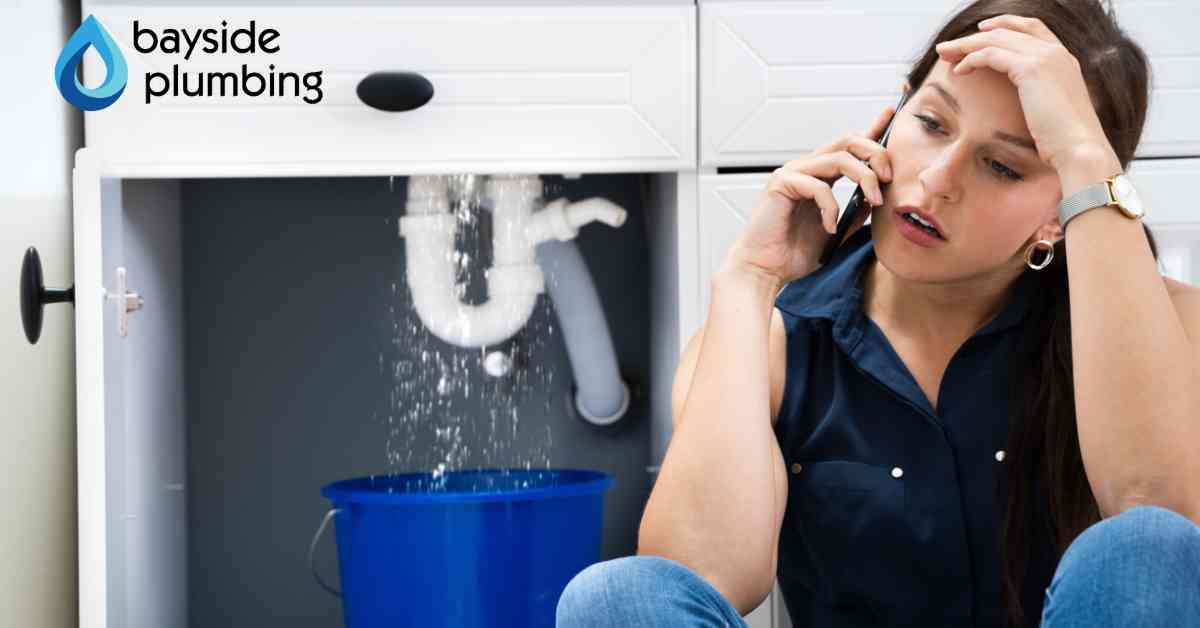Maintaining your plumbing system is essential for ensuring the comfort and safety of your home. However, many homeowners overlook the importance of regular maintenance until a major issue arises. By taking a proactive approach to plumbing care, you can prevent costly repairs and keep your system running smoothly. At Bayside Plumbing, we believe in the power of prevention. Here are some key preventative plumbing tips to help you avoid unexpected and expensive repairs.
1. Regularly Inspect for Leaks
One of the most common plumbing issues that can lead to costly repairs is a leak. Whether it’s a dripping faucet, a running toilet or a hidden pipe leak, even a small amount of water can cause significant damage over time. Regularly inspecting your plumbing system for leaks is a simple but effective way to catch problems early.
Check under sinks, around toilets and along visible pipes for any signs of moisture or water stains. If you notice an unexplained increase in your water bill, this could also indicate a hidden leak. Addressing leaks promptly can prevent water damage, mold growth and high repair costs.
2. Be Mindful of What You Flush and Pour
Your plumbing system is designed to handle water, human waste and toilet paper. Flushing or pouring inappropriate items down your drains can lead to clogs and blockages that may require professional intervention. Avoid flushing items like baby wipes, feminine hygiene products, paper towels and cotton balls, as these can easily get stuck in your pipes.
Similarly, be cautious about what goes down your kitchen sink. Fats, oils and grease can solidify and create stubborn clogs in your pipes. Instead of pouring these substances down the drain, let them cool and dispose of them in the trash. Using a drain strainer in your sinks can also help catch food particles and debris before they enter your pipes.
3. Maintain Your Water Heater
Your water heater is an essential component of your plumbing system, providing hot water for showers, washing dishes and laundry. Regular maintenance is crucial for extending the life of your water heater and preventing unexpected breakdowns.
At least once a year, flush your water heater to remove sediment buildup, which can reduce efficiency and lead to overheating or failure. It’s also a good idea to check the temperature setting on your water heater—120 degrees Fahrenheit is usually sufficient for most households. Higher temperatures can increase the risk of scalding and put extra strain on the unit.
4. Protect Your Pipes from Freezing
In colder months, one of the most common plumbing emergencies is frozen pipes. When water freezes inside a pipe, it expands, which can cause the pipe to crack or burst. This can result in significant water damage and expensive repairs.
To prevent frozen pipes, insulate any exposed pipes in unheated areas, such as porches, attics or garages. On especially cold nights, allow a trickle of water to run from your faucets—this helps keep water moving through the pipes and reduces the risk of freezing. If you plan to be away during the winter, make sure your home’s heating system is set to at least 55 degrees Fahrenheit.
5. Schedule Regular Professional Inspections
While DIY maintenance is important, it’s also beneficial to have your plumbing system professionally inspected on a regular basis. A licensed plumber from Bayside Plumbing can identify potential issues before they become major problems, ensuring your system is in good working order.
During a professional inspection, the plumber will check for signs of wear and tear, assess the condition of your pipes and test the functionality of your fixtures and appliances. Regular inspections are a small investment that can save you from the stress and expense of emergency repairs.
We hope these preventative plumbing tips were helpful! Preventative plumbing maintenance is the key to avoiding costly repairs and ensuring the longevity of your plumbing system. At Bayside Plumbing, we’re here to help you with all your plumbing needs, from routine maintenance to emergency repairs. Contact us today to learn more about our services and how we can help you protect your home.


